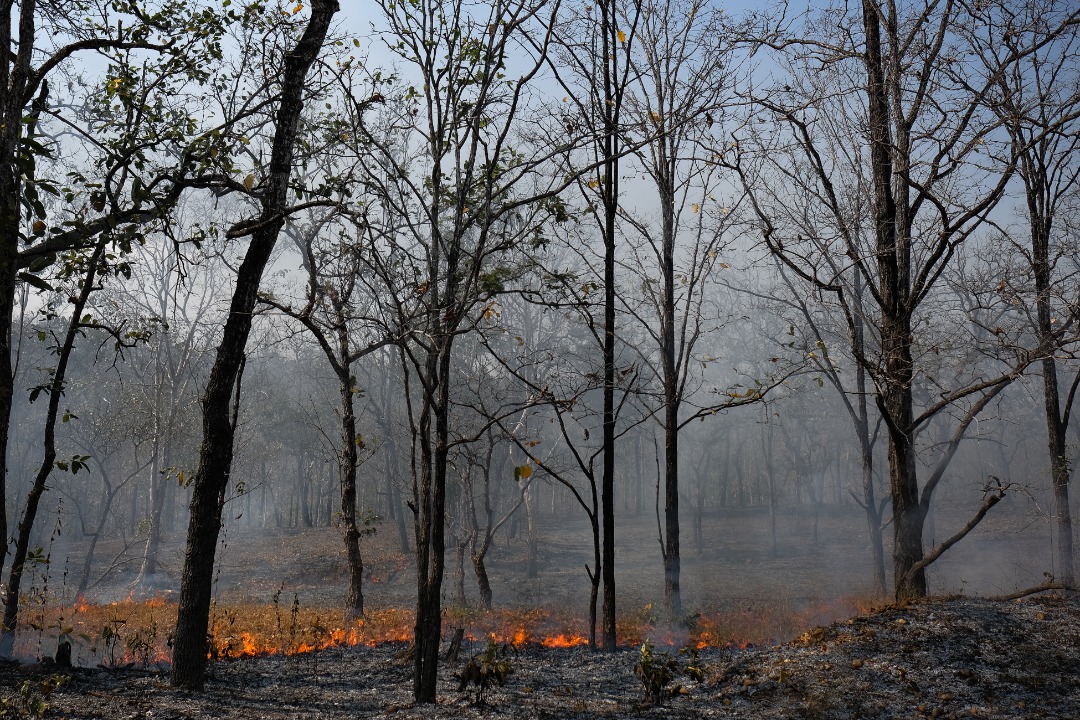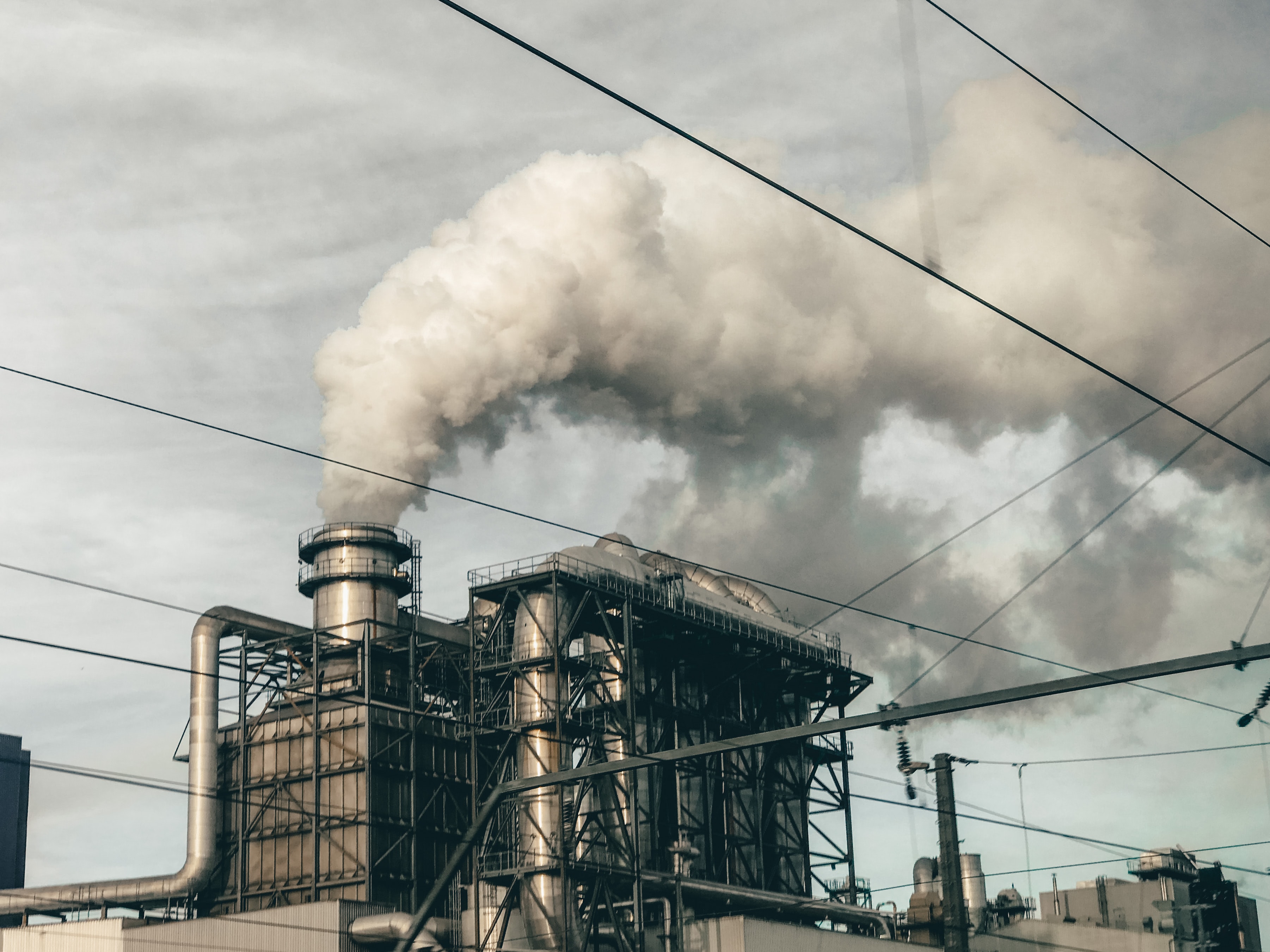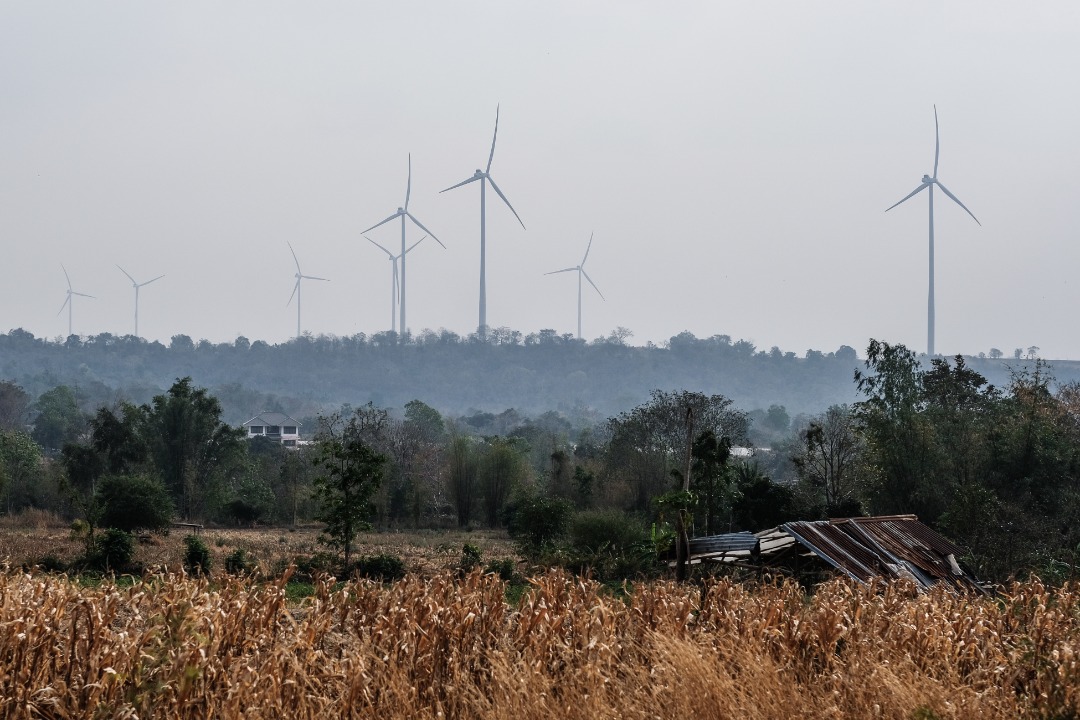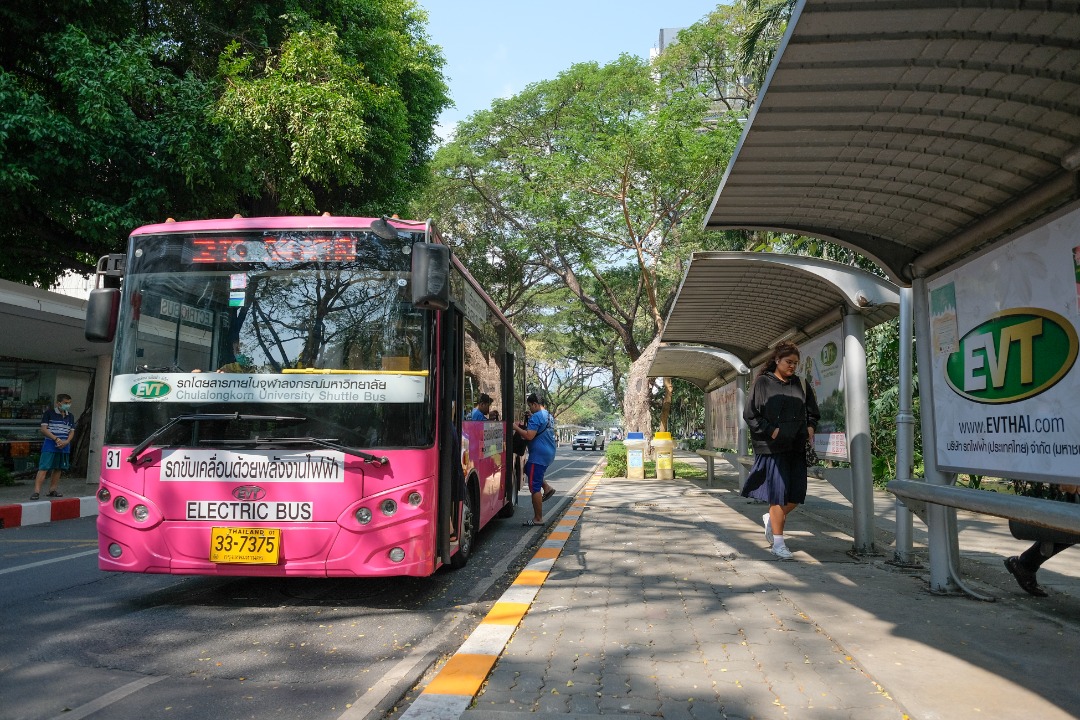By Thaweeporn Amy Kummetha
"Do cities have colours?”
“When you think about your city, what colours come to mind?”
“Does air have colour? Or have you ever wondered if we can see air?”
“What is actually in the air?"
These are questions posed by Ms Amata Chittasenee, a makeup artist-turned-environmentalist, when she started a project to 'swatch' the colours of our air. To do so, she stuck transparent tape on different surfaces around Bangkok to find out what are the hidden colours of air in her city.
The tapes picked up a spectrum of grey to pitch black, suggesting that the air is full of dust (Watch the video here).

Screenshots of an Instagram Reel of Pearypie show her notebook with the results of the ‘dust colour swatch’ of Bangkok surfaces, mostly on public transport.
Ms Amata is one of many people in Thailand who has raised awareness about the air pollution of Thailand in recent years.
Air pollution is a complex mixture of solid particles, liquid droplets and gases. But the most critical impact on human health comes from delicate particulate matter, known as PM 2.5, which is smaller than the width of a human hair. They can quickly enter our bodies, even making their way through the bloodstream affecting all major organs.
Air pollution increases the risk of many non-communicable diseases, such as ischaemic heart disease, stroke, chronic obstructive pulmonary disease and lung cancer.

Forest fires in Chiang Mai, northern Thailand, in 2020. Forest fires are common in the dry season in the North of Thailand, contributing to the air pollution crisis. © UN Thailand/2020
In April 2022, PM2.5 concentration in Thailand's air was four times higher than the WHO annual air quality guideline value. This means the Thai population breaths in air that is too polluted, and which will affect their health. In 2016, it was estimated that over 33,000 deaths in Thailand were attributable to ambient air pollution.
Air pollution in Thailand is seasonal. From December to February each year, it is relatively common to see people in Bangkok wearing masks while walking on the streets or switching on air purifiers at home. This is the cost that individuals pay to prevent themselves from getting sick.
Research conducted by Associate Professor Witsanu Attavanich, an environmental economist at Kasetsart University, estimated that the social cost generated from PM2.5 nationwide in 2019 is equal to 2.17 trillion THB per year, accounting for almost 11% of gross domestic product of that year.
"The cost of air pollution is tremendous. If the problem is not solved and continues in the future, the cost will accumulate every year. Is economic development worth having the health of the Thai population deteriorate?" asked the economist. He added that the country's human capital would recede if we let air pollution continue to harm the health of future generations.

Industrial chimneys are major sources of air pollution. Photo by Jeremy Bishop on Unsplash
People from different income levels have different capacities to protect themselves from air pollution. According to Dr Wirun Limsawart, Director of the Society and Health Institute, Ministry of Public Health, there is a disparity in awareness and access to protective means among people from different socio-economic backgrounds. "Living in the same city of Bangkok are two children who live in the same neighbourhood. One of them lives in a house with air conditioners and purifiers. Their parents closely follow the news. Meanwhile, another child lives in a slum. Their parents know nothing about air pollution. So even though they breathe the same air, the latter will certainly die before the former. This is inequity," said Dr Wirun.

Wind turbines at the Thepphana Wind Farm in the northeastern province of Chaiyaphum. Wind energy is a clean fuel source because it does not involve the combustion of fossil fuels. © UN Thailand/2020
Dr Wirun said clean air should not be a matter of luxury but fundamental human rights. "The right to breathe clean air is part of the right to live a healthy life." This entails having extra measures to care for people susceptible to air pollution, such as the elderly, pregnant women, children, people with respiratory problems, people with asthma, and people who work in the open air such as street vendors and traffic police, said Dr Wirun.
Reducing air pollution, through reducing combustion like fuel burning in cars and factories, and open burning of waste in households or agriculture can save many lives. A study estimated that a 20% reduction in air pollution could prevent up to 25% of avoidable deaths each year.
“Tackling air pollution requires an effort from everyone, from individuals, communities, agencies, industries, to policymakers and enforcers, across all branches of government. That is what we call a whole-of-society and whole-of-government approach. A shift towards healthier and more sustainable policies implemented and adopted by everyone concerned will be required. Poor-quality air must become something that is no longer acceptable. The pay-off will be that many more people will enjoy better health and live in more appealing and undamaged environments. Less impact on people’s health will also mean lower health care expenditures,” said Dr Jos Vandelaer, WHO Thailand Representative.
Individuals can also take measures themselves, such as closing windows and using a dedicated air purifier or a filtered air conditioner while indoors, wearing an N95 mask when going outside (surgical masks protect against COVID-19 but not against the small PM2.5 particles in polluted air), using public transportation instead of own vehicles, don’t burn open fires etc.
In 2019, the Royal Thai Government decided to make air pollution a national priority. It later released the national action plan for "Addressing the pollution problem (particulate matter) 2019-2024." The plan aims to empower local authorities to better tackle the sources of air pollution, such as factories and open agricultural burnings.
Dr Wirun said the Plan was well-drafted but there remain gaps in implementation, adding that Thailand needs a new, powerful law and powerful law enforcement to handle extensive and complicated problems like air pollution.

‘Chula Pop Bus’ is an electrically powered bus servicing students and staff of Chulalongkorn University, Bangkok. The bus is a part of the university’s green initiative to reduce air pollution © UN Thailand/2020
